Project successes of our scientists
24.06.2022
Nine researchers from the Medical University of Gdańsk obtained grants from the National Science Centre during contests OPUS 22 and SONATA 17, as well as the first month of recruitmentn for contest MINIATURA 6. Scientists have obtained funding in the total amount of over 14 million PLN.
OPUS 22 (4 projects)
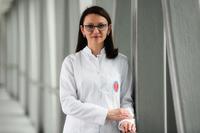
Project entitled New immunomodulators of the BTLA-HVEM complex as a potential therapy in systemic lupus erythematosus co-founded with 1 904 664 PLN will be carried out under the supervision of Dr. Habil. Anna Wardowska from the Department of Physiopathology of the MUG as part of a consortium with the University of Gdańsk. The aim of the research is to analyze the biological properties of the new ligands of the BTLA-HVEM complex. It belongs to the suppressive points of immune control. Scientists intend to identify compounds that, by regulating the activity of BTLA-HVEM, will modify the activity of the immune system of patients with systemic lupus erythematosus.
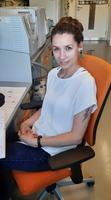
Dr. Habil. Adriana Mika, Assoc Prof. from the Department of Pharmaceutical Biochemistry received funding in the amount of 1 521 660 PLN for a project concerning the analysis of changes in a wide range of metabolite profiles in obese patients with their clinical parameters. They describe the state of health after the three most popular bariatric procedures performed at the Centre for the Treatment of Obesity and Metabolic Diseases of the MUG. These are: laparoscopic sleeve gastrectomy, loop gastrointestinal bypass, and gastrointestinal bypass Roux-Y.
– In particular, changes in eating habits following bariatric surgery may be important for the microbiome and metabolism of bariatric patients. As metabolites produced by the microbiome can be absorbed in the gut of obese patients, a better understanding of the relationship between the host and the metabolome of the microflora after bariatric surgery may allow for better patient selection for different procedures and lead to the development of the next generation of therapies leading to weight reduction as well as improving metabolism people. We also believe that the knowledge gained may help in the future to design a personalized probiotic and dietary intervention to obtain the optimal impact of bariatric surgery on the gut microbiome and patient health. – explains Prof. Adriana Mika.

Dr. Habil. Krzysztof Hinc from the Division of Molecular Bacteriology obtained funds and became the leader of the project entitled Role of prophages in clinical virulence of strains of the human pathogen Clostridioides difficile in vitro and in vivo. It will be implemented as part of a consortium in cooperation with Prof. Hanna Pituch from the Medical University of Warsaw and Prof. Gajane Martirosian from the Medical University of Silesia. The total co-financing of the project is 2 503 684 PLN, of which the MUG as the consortium leader received 978 928 PLN.
– The aim of the project is to understand the effect of prophages on bacterial host virulence and the course of C. difficile infection. The obtained results will allow us to answer the question whether bacteriophages, by their influence on the virulence of bacteria, constitute a real threat to hospitalized patients. This will enable clinicians and epidemiologists to identify lysogenic strains with increased virulence and implement special surveillance of infection with this pathogen in the facility. – says Dr. Habil. Krzysztof Hinc.
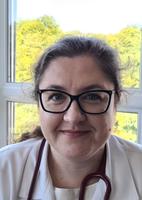
Dr. Habil. Justyna Gołębiewska from the Department of Nephrology, Transplantology and Internal Diseases received funding for the implementation of the project entitled Exosomes as a potential biomarker for the monitoring and prognosis of kidney transplant rejection. The total co-financing of the project is 3 826 344 PLN, of which MUG as the consortium leader was 1 807 088 PLN. The project plans to identify and analyze the composition and function of exosomes released by transplanted kidney cells and present in the recipient’s bloodstream. The project will be implemented as part of a consortium which, apart from our University, includes: Maria Sklodowska-Curie National Research Institute of Oncology Gliwice Branch and the Institute of Bioorganic Chemistry, Polish Academy of Sciences.
– We will analyze the protein components of the exosomes with the use of liquid chromatography methods coupled with high-resolution mass spectrometry. We will also monitor the patient’s immune parameters, including T lymphocyte subpopulations, interleukin profile and the presence of anti-HLA antibodies – explains Dr. Habil. Justyna Gołębiewska. – The implementation of the project will contribute to the understanding of the immunomodulatory role of selected protein components of exosomes and broaden the knowledge of the biology of these structures, with particular emphasis on their participation in the mechanisms of rejection of a transplanted kidney. The possibility of quantifying the level of exosome-specific components released by a transplanted organ may in the future serve as a non-invasive method of monitoring its condition and predicting the risk of transplant rejection.
SONATA 17 (3 projects)
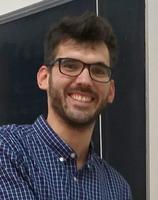
Damian Flis, Ph.D. from the Department of Pharmaceutical Pathophysiology together with specialists from the Division of Rehabilitation Medicine and Division of Bioenergetics and Physiology of Exercise will be implementing a project entitled Searching for mechanisms that improve motor skills and extend life in amyotrophic lateral sclerosis – the role of mitochondria in these processes. The NSC granted funding for this purpose in the amount of 2 552 600 PLN.
– The project aims to study the supply of compounds inducing mitochondrial biogenesis and swimming training, as well as the combination of these therapeutic possibilities (hybrid therapy) on the quality and life expectancy of mice that are a model of human disease – amyotrophic lateral sclerosis (ALS). The aim of the project is also to search for the mechanism responsible for the changes visible in skeletal muscles and nervous tissue in the group of animals subjected to therapy – says Damian Flis, Ph.D. – Discovering the mechanisms related to oxidative stress, mitochondrial biogenesis and energy metabolism and responsible for prolonging the life of ALS mice seems important both from the point of view of scientific and practical issues. The study could also identify mechanisms of mitoprotection induced by modification of MAMs components that could provide new treatment options for both neurodegenerative diseases and other diseases related to mitochondrial dysfunction.
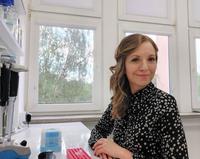
Marta Tomczyk, Ph.D. from the Department of Biochemistry received funding in the amount of 1 638 928 PLN for the implementation of the project entitled New pathway for vitamin B12 activation by CD73 – analysis of molecular mechanisms, in vivo processing and clinical significance.
– The aim of the study is to continue the conducted experiments and determine the role of the CD73 molecule in the transport and intracellular metabolism of vitamin B12. In addition, new therapeutic options will be sought to restore the normal function of CD73 and thus maintain the proper functioning of vitamin B12 in the body. The project also aims to identify a specific metabolite or changes in the structure of the CD73 (NT5E) gene associated with vitamin B12 deficiency and propose a new diagnostic test. The project includes research on cell lines, animal research models and clinical samples – explains Marta Tomczyk, Ph.D.
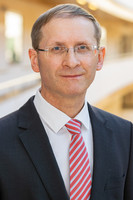
Professor Jacek Zieliński from the Departament of Surgical Oncology as a partner in a consortium led by the Gdańsk University of Technology, obtained a grant for a project entitled Optimizing the shape and distribution of gold nanostructures in a bactericidal chamber using the photothermal ablation process, the total value of which is over 900 000 PLN.
MINIATURA 6 (2 projects implemented since June 2022)
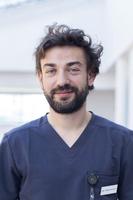
Andrzej Hellmann, Ph.D. from the Division of General, Endocrine and Transplant Surgery received PLN 35,200 financing for the project entitled Assessment of changes in the fatty acid profile in serum and thyroid tissue in patients with cancer and autoimmune thyroiditis concerning thyroid cancer and Hashimoto’s disease.
– The aim of the project is to analyze the fatty acid profile in a group of patients with thyroid cancer and Hashimoto’s disease undergoing thyroidectomy at the Thyroid Cancer Treatment Centre of the UCC. Preliminary studies show that this group has a significantly increased level of polyunsaturated fatty acids, and the analysis of the serum of patients compared to the healthy control group revealed increased amounts of very long-chain fatty acids – explains Andrzej Hellmann, Ph.D. – The research hypothesis assumes that the comparison of the fatty acid profile in serum and tissue in two separate groups of patients will help identify potential biomarkers of thyroid cancer development and its relationship with Hashimoto’s disease.
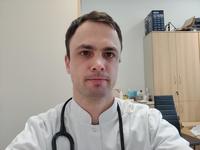
Jan Romantowski, Ph.D. from the Division of Allergology will implement the project entitled Testing the relationship between cognitive impairment and the concentration of selected cytokines in peripheral blood serum and the radiographic image of the brain in patients with systemic mastocytosis. The National Science Centre allocated 42 350 PLN for this purpose.
– Systemic mastocytosis is a rare bone marrow disease leading to excessive activation and degranulation of mast cells. Cognitive impairment is observed in up to 27% of patients, but their relationship to the course of mastocytosis and mast cell mediators remains unclear – emphasizes Jan Romantowski, Ph.D. – We plan to study patients with systemic mastocytosis with the help of i.a. MiniMental State Examination. In a selected group of patients with cognitive impairment, we will label the following cytokines: IL1beta, IL6, IL33 and IL37, which play an important role in the course of mastocytosis, and we will compare these parameters with the control group of patients with mastocytosis without cognitive impairment. The study will be complemented by magnetic resonance imaging of the brain in patients with cognitive impairment.
More information about the results of competitions and projects is available on the Polish-language NSC’s website.
photo by: Paweł Sudara/MUG, Sylwia Mierzewska/UCC, Katarzyna Rainka, scientists’ private archive
Archives
- Academic Year 2024/2025
- Academic Year 2023/2024
- Academic Year 2022/2023
- Academic Year 2021/2022
- Academic Year 2020/2021
- Academic Year 2019/2020
- Academic Year 2018/2019
- Academic Year 2017/2018
- Academic Year 2016/2017
- Academic Year 2015/2016
- Academic Year 2014/2015
- Academic Year 2013/2014
- Academic Year 2012/2013